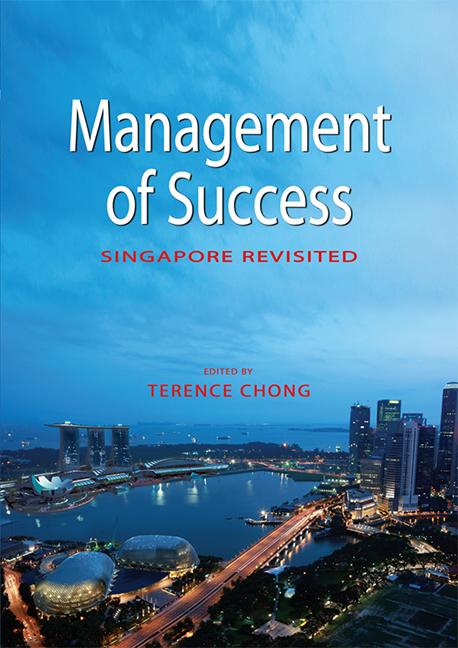Book contents
- Frontmatter
- Contents
- List of Tables and Figures
- Foreword
- Message
- Quote
- Preface
- The Contributors
- 1 Introduction: The Role of Success in Singapore's National Identity
- SECTION 1 SINGAPORE IN THE BIGGER PICTURE
- SECTION 2 LEADERSHIP, POLICY AND POLITICS
- 4 PM Lee Hsien Loong and the “Third Generation” Leadership: Managing Key Nation-building Challenges
- 5 Political Consolidation in Singapore: Connecting the Party, the Government and the Expanding State
- 6 The Evolving Social Compact and the Transformation of Singapore: Going Beyond Quid Pro Quo in Governance
- 7 The Ardour of Tokens: Opposition Parties’ Struggle to Make a Difference
- SECTION 3 THE RESTRUCTURING OF THE ECONOMY
- SECTION 4 THE TRANSFORMATION OF SOCIETY
- SECTION 5 THE LAW
- SECTION 6 MODIFICATION OF THE ENVIRONMENT
- SECTION 7 COMMUNITY AND NATIONAL SECURITY
- SECTION 8 LIFE IN SINGAPORE
- Index
7 - The Ardour of Tokens: Opposition Parties’ Struggle to Make a Difference
from SECTION 2 - LEADERSHIP, POLICY AND POLITICS
Published online by Cambridge University Press: 21 October 2015
- Frontmatter
- Contents
- List of Tables and Figures
- Foreword
- Message
- Quote
- Preface
- The Contributors
- 1 Introduction: The Role of Success in Singapore's National Identity
- SECTION 1 SINGAPORE IN THE BIGGER PICTURE
- SECTION 2 LEADERSHIP, POLICY AND POLITICS
- 4 PM Lee Hsien Loong and the “Third Generation” Leadership: Managing Key Nation-building Challenges
- 5 Political Consolidation in Singapore: Connecting the Party, the Government and the Expanding State
- 6 The Evolving Social Compact and the Transformation of Singapore: Going Beyond Quid Pro Quo in Governance
- 7 The Ardour of Tokens: Opposition Parties’ Struggle to Make a Difference
- SECTION 3 THE RESTRUCTURING OF THE ECONOMY
- SECTION 4 THE TRANSFORMATION OF SOCIETY
- SECTION 5 THE LAW
- SECTION 6 MODIFICATION OF THE ENVIRONMENT
- SECTION 7 COMMUNITY AND NATIONAL SECURITY
- SECTION 8 LIFE IN SINGAPORE
- Index
Summary
THE POLITICAL LANDSCAPE
If success is defined as a political system of such stability that a single political party can expect to remain in power twenty, thirty years into the future, and therefore be able to make farsighted decisions in the long-term interest of a country, then Singapore is extremely successful. The privileging of such political stability stems partly from Singapore's formative experience of the 1950s and 1960s when racial tension and labour agitation were common, and is also partly perpetuated by the ruling People's Action Party (PAP) upon independence for its own nation-building objectives. Indeed, the PAP government may sincerely believe that it is in the interest of Singapore to limit oppositional politics so as to check the disruptive effects competitive politics may have on the success which the ruling party sees itself as entrusted to bring about and manage. The question, of course, is whether such a definition — that success means stability at all costs — is wise. In fact, it will be argued here that it is precisely because stability appears so solid, actively defended against erosion by liberal democratic processes, that the risks of it all ending in instability are high.
The recent tweaks to the electoral system, announced in May 2009, may indicate that the PAP is becoming aware of the risks. The sizes of Group Representation Constituencies (GRCs) are to be trimmed slightly to average five members; there will be an increase in the number of Single Member Constituencies (SMCs) from nine to twelve, and there will be a minimum of nine opposition Members of Parliament (MPs) including whatever number of Non-constituency MPs (NCMPs) are needed to make up the nine.
The PAP government has justified these changes by saying that there was a need to raise the quality of debate in the legislature, carefully avoiding reference to any increasing desire among citizens to see opposition views represented in Parliament, if indeed there is any such increasing desire. Whether the relatively minor changes will serve to benefit opposition parties, and which ones among them, it may be too early to tell. It will probably need about two more general elections before the effects can be discerned.
- Type
- Chapter
- Information
- Management of SuccessSingapore Revisited, pp. 100 - 120Publisher: ISEAS–Yusof Ishak InstitutePrint publication year: 2010

